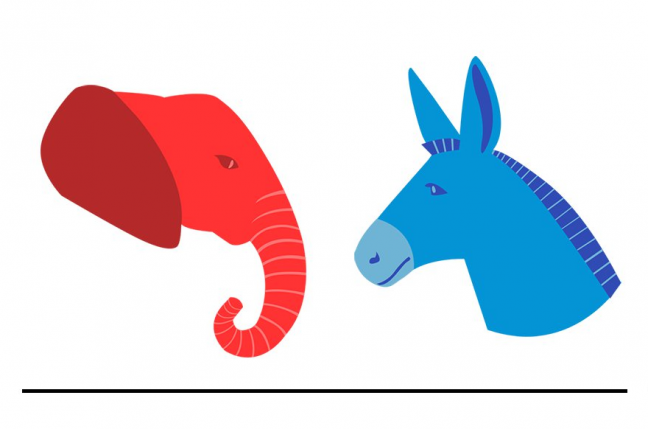Round up some droogs, scramble a few eggywegs, enjoy Stanley Kubrick’s classic macabre film as-is
A Clockwork Orange is one of the most depraved pieces of fiction created in our modern world. Our humble narrator Alex DeLarge spends a majority of his time onscreen beating or molesting innocents for the fun of the old ultraviolence – and even when he’s not, he’s usually talking about how he wants to.
That’s the charm of the world Anthony Burgess created in text, and Stanley Kubrick brought it to life on screen. It is a world where this kind of debauchery is accepted and expected by society. So when our dear Alex redeems himself at the end of the book, he takes a step so far out of his natural self that the final chapter becomes more jarring than every brutal act he committed before.
Let’s take a look at Alex’s story and see if we can’t find any clues about whether this redemption feels realistic. He spends his days lying to his parents and fucking women and his nights committing drugged-up acts of brutal violence for fun, all set to the music of Beethoven.
Then his lovely droogs (friends) betray him, and he winds up in jail for the murder of an innkeeper in a leotard. In jail, he pretends to redeem himself. He works for the Charlie, who believes him to be a very sweet young man. Too bad the things he loves about the Bible are the rape and murder scenes, or else the readers and viewers might be convinced, too.
Then he is subjected to the Ludovico Technique – a method of curing violence. It forces people to watch extremely depraved scenes of rape and murder, while giving them drugs to make them feel sick, thereby associating violence with sickness. During this process, the doctors also force him to listen to Beethoven’s music, the one pure thing he ever loved.
After the treatment, Alex can no longer hit a man, perform the old in-out-in-out with a woman or even listen to his favorite symphony without feeling violently sick. But let’s be clear on this: His first instinct is to revert to his old ways. He is forced to stop by physical illness, but this in no way makes him want to be good.
When he returns home, he finds his parents have rented out his room. And his old droogs are now police officers who try to kill him. He is momentarily rescued by an old victim, who recognizes him and forces him to listen to Beethoven until he throws himself out a window.
But things were finally looking up for Alex. Either the fall or the surgery he received after messed with the treatment. And he was cured. He was cured all right.
So realistically – in this world of ultraviolence, where drugged-up milk is available for purchase from the nipple of a statue – where is Alex going to turn? Will he be good, something he has never expressed legitimate desire to be? When doing good has only ever brought him despair and pain and loneliness? Or will he go back to the life he loved?
Both the book and the movie serve as brilliant looks at free will and the dichotomy of good and evil within human nature. But what the final chapter ignores is that some people are simply evil to their cores. And Alex, either by nature or as a result of the world he knows, is one of those people. For me, the snarky end of the film vastly trumps any joy I feel from the impossible redemption presented in the book.
Is an involuntary good really good? Burgess’ point – that it is not – is not lost in the film. But Kubrick’s creation makes the point without tacking on an ending that feels cheap and whitewashed.
Guest columnist Hughes asks: ‘Orange you glad Burgess included the final chapter in his coming-of-age novel?’
Yeah, yeah: I know how horrorshow (cool) it is to watch a movie or read a story with dark themes and pessimism presented in a cheerful manner. I’m a big fan of dark comedies – or anything dark in general – as are many others my age. I think as young people begin to grow older, more independent and educated by life’s experiences, some pessimism can leak in, making dark theatre or literature all the more satisfying.
So I understand how the movie adaptation of “A Clockwork Orange” naturally appeals to many people, with its omission of the novel’s final chapter. Alex, the anti-hero, has his wickedness “cured” by the nefarious government, literally restricting him from doing or thinking anything wrong.
But no, nobody deserves to have their free will confiscated. To make a long story short, the movie ends with a stirring image of Alex having sex with a woman in front of an applauding crowd – as Beethoven lends the splendid background tunes. “I was cured all right,” he says in the narration, and you can just picture his sneer unraveling as he says it.
It is vintage Stanley Kubrick, a champion of the darker genres. With his adaptation of the tale, he paints a giant, foul grin of an ending – while, in the book, author Anthony Burgess culminates with a happily-ever-after close instead. But Burgess’ final chapter nevertheless contains a richer message than the omitted version seen on screen.
In Burgess’ ending, the government returns Alex’s free will, but – rather than return to his old life as a sadist – Alex recognizes his faults and opts for a virtuous life. Both the film and novel serve as a wonderful meditation on the importance of free will, but the final chapter gives the novel’s message an extra kick.
The film’s standout message is that an individual is better off free and immoral than determined to be good by a higher power. However, the novel’s main idea is slightly different as it turns out to be a musing on what it means to be good while keeping the themes of free will present.
At one point in the novel, Alex is coerced into being good. Also, later on at the ending – after regaining total freedom – he chooses to be good and, for all we know, stays that way. This explicitly makes clear Burgess’ view that it is only worth being good if one is good voluntarily.
It’s an important question for any human being to think about, one that even Plato toiled over with God as the backdrop.
Remove the redemptive chapter and the story’s reflections on free will vs. morality become lost in a glorified image of the macabre. It’s a drastic, even unexpected, turn for a novel that thrives for so long on a darker tone, but it is, at heart, a coming-of-age tale anyway. This is further emphasized by the 21 chapters in the book, a number which Burgess composed intentionally to highlight the age at which people are thought to mature.
Alex is merely a teenager in the story; he has plenty maturing to do, and the extent of his evil is necessary for Burgess to get his message across effectively. The ending he chose, which Kubrick decided to omit, deserves no appypolly loggy.























